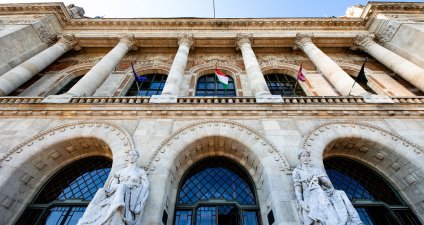Student communities
Competitive teams
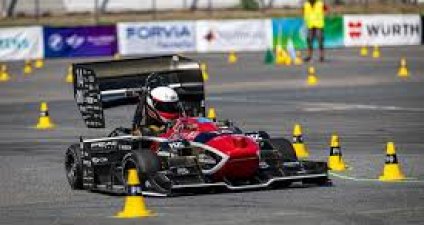
The BME Competitive Team Community (MVK) brings together student competition vehicle building formations at BME, which design and build a variety of land, water and air constructions. Students, representing Hungary and BME, participate in the most famous national and international constructors' competitions with these vehicles.
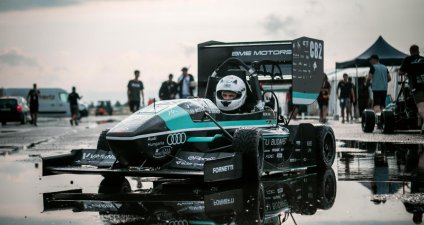
One of the youngest competitive teams at BME was formed in 2018. The team initially set out to design and build a classic, internal combustion formula car, which was replaced by a hybrid in 2023.
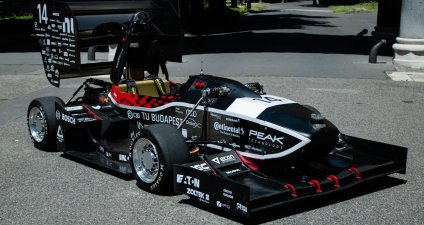
BME Formula Racing Team was founded in 2007 by engineering students with the aim to be the first and then only Hungarian team to build a racing car and participate in the world-wide Formula Student racing series. The latest car of the formation is called "Zoe". The race car is an electrically powered EV/DV vehicle capable of competing in both manual and autonomous racing events.
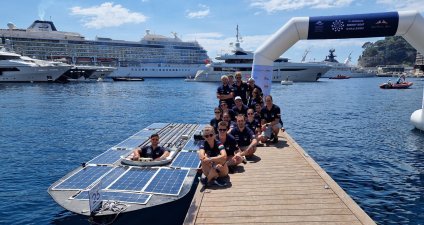
BME Solar Boat Team, originally founded in 2014 by 3 mechanical engineers, set out to design and build a human-driven, all-electric racing boat powered solely by solar energy.
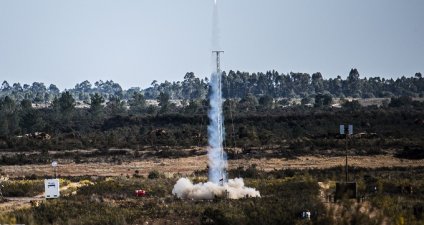
The competitive team designs, develops, builds and tests suborbital rocket systems and associated scientific measurements. It aims to give all students interested in space science the opportunity to broaden their interests, realise their innovative ideas and gain practical engineering experience. The team was involved in organising the first Hungarian national CanSat competition in 2023.
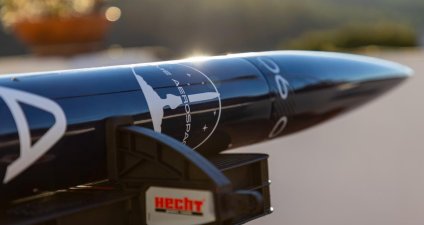
The team was founded in 2022 by engineering students at BME to develop educational supersonic research rockets. The team aims to combine the enthusiasm and thirst for knowledge of university students with the knowledge of the most renowned domestic experts in the space sector.
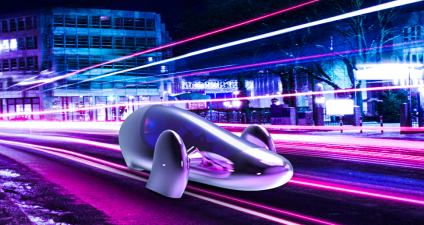
The competitive team was formed in 2014 specifically for the 2015 Shell Eco-marathon (SEM) in Rotterdam, the continent's largest fuel efficiency race. The challenge for the participating teams is to drive their vehicles the longest possible distance on a single litre of fuel, or 1 kWh of energy. The formation was re-established in 2023 and is currently developing a vehicle with a unique single-cylinder diesel engine, developed in-house.
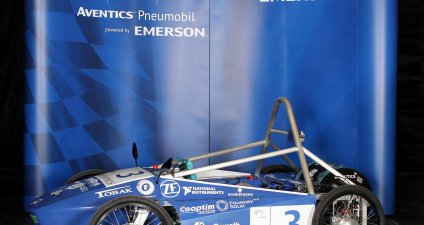
The team is working on the design and construction of a 4-wheeled, pneumatic, compressed air-powered racing vehicle with one person as an on-board driver.
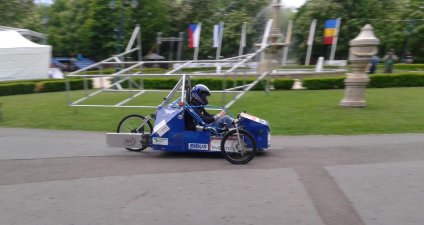
The team is developing cars powered by compressed air, with the aim of achieving the highest possible range and acceleration. The cars gain their speed from the energy of a 200 bar cylinder, so they need to be light enough to achieve good performance, and have high efficiency.
Colleges for advanced studies

At BME, there are several colleges for advanced studies linked to faculties or professional groups. In addition to, but related to academic studies, colleges for advanced studies organise programmes for students to develop their talents, to educate them or even to work with companies in the market.
The umbrella organisation of colleges for advanced studies at BME is the BME Association of Colleges for Advanced Studies (MŰSZAK).
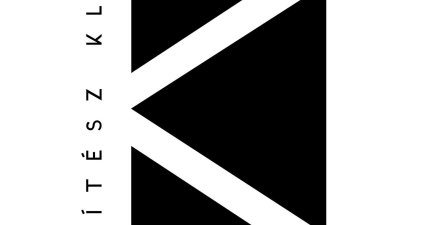
The college for advanced studies at the Faculty of Architecture was founded in 2008 as a student circle, and since spring 2019 it has been officially accepted by the Faculty Students’ Representative Council. It is an open professional workshop, where the members and prospective members of the club are students who are interested in current or eternal issues of architecture beyond their university studies. The college for advanced studies mainly organises lectures on architecture, building tours and community activities mixed with other professional programmes.
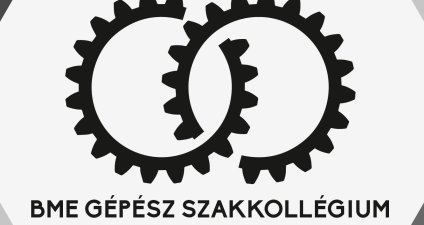
The Faculty of Mechanical Engineering's college for advanced studies was established in 2012 as a grouping of the faculty's professional self-study circles. Its programmes offer students the opportunity to acquire professional skills that complement their university studies. Divisions within the college for advanced studies Forming technology, Fluid mechanics, Building service engineering, Manufacturing, Welding, Polymer, Mechatronics, Computer engineering, Design.
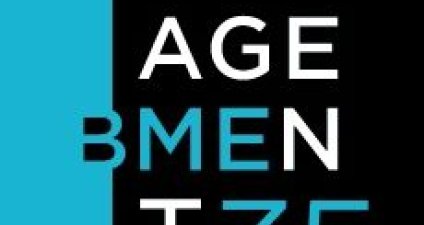
BME MSZK was founded in 1986 as a voluntary student organisation. It has now become an independent, non-profit organisation, where students, mainly economics and engineering students, can participate in various professional college programmes (e.g. Management Academy, Academic Programme Marathon, ESET - Business Case Study Competition and Case Study Solving Preparatory Training, Project Management Club Afternoon, lectures, courses, training, strategic management, learning business English, etc.), where they are able to gain high level management and entrepreneurial skills, project management approach and practice.
The college for advanced studies of the Faculty of Chemical Technology and Biotechnology was originally established in 2001 to promote bioengineering among students. Every year since 2006, the society has organised the Albert Szent-Györgyi Conference, where speakers from the fields of chemical and bioengineering (e.g. materials science, biotechnology, pharmaceutical technology, molecular modelling and environmental protection) are invited to present the latest industrial and academic R&D results. In summer, the Chemistry Camp event takes place, where students spend a week with intensive mathematics and chemistry remedial education to prepare freshmen for the first term's tests. A free tutoring scheme has been set up to help those who are lagging behind.
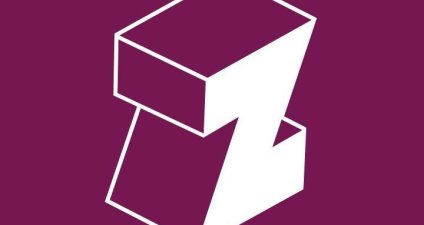
The college for advanced studies of the Faculty of Civil Engineering organises several programmes for its students. These include professional study tours (e.g. the construction of stations of metro line 4, completed parts of the Gabčíkovo–Nagymaros waterworks or the Bátaapáti nuclear cemetery, etc.), thematic lecture series and the annual professional conference. The autumn Civil Engineering Professional Week event offers a varied programme of professional activities for interested students over five days. As part of this event, an international bridge-building competition is held: participating students have to build a bridge based on pre-defined criteria (materials, span, load capacity, bending, etc.), and at the end of the competition, the jury will test the students' creations, including by means of a test load.
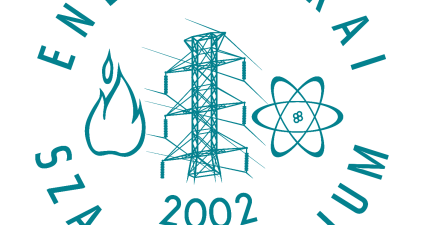
The college for advanced studies was established in 2002 with the support of the Hungarian Scientific Society of Energy Economics (ETE), the Hungarian Electrotechnical Association (MEE) and the Hungarian Energy Society (MET), in cooperation with students of mechanical and electrical engineering. The college organises regular lectures, forums, in-house advanced training courses and plant visits to gain better understanding of the science and current issues of energetics. One of its main professional programmes is the biennial International Youth Conference on Energy (IYCE), organized by the college.
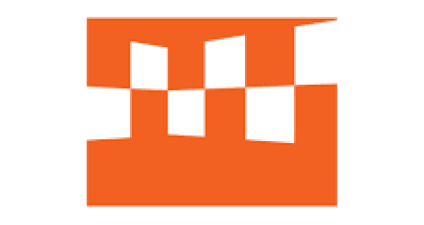
The Architecture College for Advanced Studies was established in 1996 in the Bercsényi residence hall of BME with the aim of complementing the architectural education at BME with a complex, high quality form of education that meets international standards within the framework of a self-study system that is capable of continuous development. The college regularly organises studio sessions, architectural lectures, courses, workshops, domestic study tours, student design presentations and helps to archive the written cultural heritage of architecture.

The aim of the college, established in 2018, is to provide its members and students of the BME Faculty of Mechanical Engineering with the opportunity to acquire knowledge in materials science beyond the scope of their university education through lectures, courses, plant visits and special laboratory activities. The college strongly supports the professional development of its members and their scientific student activities, including thesis and TDK topics and conference participation.

The KommON BME Communications College for Advanced Studies was established in February 2012 as the first communications college in the country. It aims to organise practical knowledge-sharing initiatives for people interested in social sciences, communications and media. Professional evenings of the college feature presentations from experts in the field of communications and media in Hungary. The "MaEste" (Tonight) programme provides an opportunity for professional networking between students and teachers of communications and media studies.

The organisation was founded in autumn 2008 to give students interested in transport sciences the opportunity to pursue independent professional activities in their free time and to learn more about their chosen field of expertise. It organises remedial and advanced training courses, plant visits, symposia and engineering competitions. In 2012, the college initiated an independent vehicle construction project, doing everything from design to construction within its confines. It is located in the Baross Gábor residence hall of BME.

The college was established in 2007 at the Faculty of Economic and Social Sciences. As part of its professional activities, the college organizes independent lectures, professional trainings, case study competitions and workshops. The Tibor Liska Professional Days are organized each year, where renowned speakers are invited, mainly from the fields of economics and finance. Biennially a camp is organized under the name LisKaLand, based on the model of its namesake. Camps are organized in the autumn and spring terms. At events of LiskaEst, students can meet not only professional speakers but also the college's supporters. The LisKonferencia, which has been held since 2014, is a one-day lecture series where BME GTK lecturers give short presentations on their scientific work and current research results.

The college was founded in 2003 and is located in the Schönherz Zoltán residence hall of the Faculty of Electrical Engineering and Informatics at BME. It currently consists of 8 member circles, covering almost the entire field of electrical engineering and IT, from studio engineering to robotics and telecommunications networks. The ongoing professional courses, demonstrations and the more than HUF 80 million worth of equipment provide an excellent opportunity for students to deepen their theoretical knowledge and put what they have learned in the classroom into practice. As part of their activities, students also have the opportunity to develop individually and implement their own professional ideas and innovations. The main events of the college are the Professional Evening, the Simonyi Colours lecture series and the Simonyi Conference, where every year renowned partner companies such as Google and Microsoft participate.
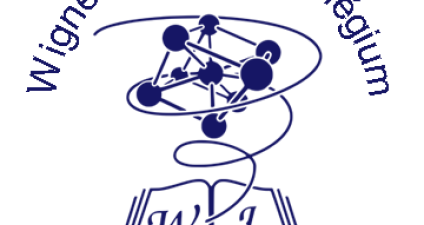
The college for advanced studies of the Faculty of Natural Sciences at BME was established in 2011 at the initiative of physics and mathematics students. The college also regularly organises workshops, problem-solving and programming seminars, demonstrative tool-building sessions and electronics courses. One of the highlights of the week is the TTK Academic Programme Week, where students can meet corporate partners with interest in natural sciences. The Experiment Circle, which runs various projects and courses, is part of the college. The Wigner Experiment Group is also present at several university professional and leisure events with spectacular and interactive demonstrations, which, besides providing entertainment, also aim to promote science.
Voluntary circles

Somodi Áron Fábián
egyetemizoldkor@gmail.com

Harmath Eszter
bmesquash@gmail.com
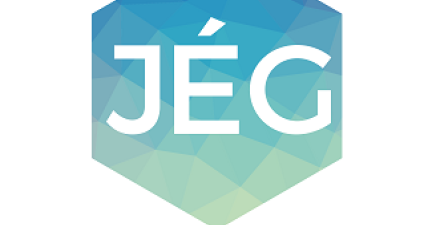
Bárdos Dávid
david.bardos.jeg@gmail.com
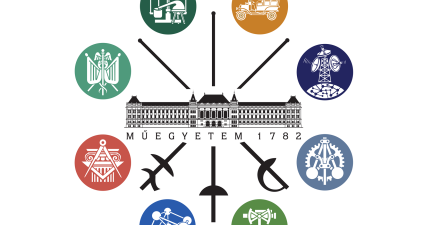
Záhonyi Petra
muegyetemivivokor@gmail.com
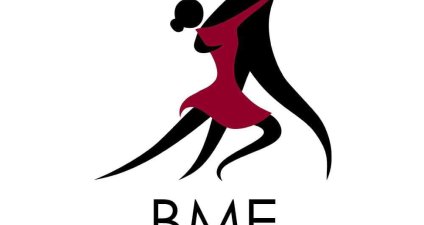
Magyar Boglárka
bmetiztanc@gmail.com
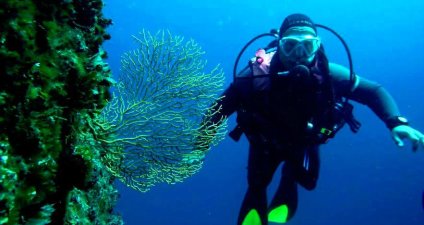
muegyetemibuvarklub@gmail.com
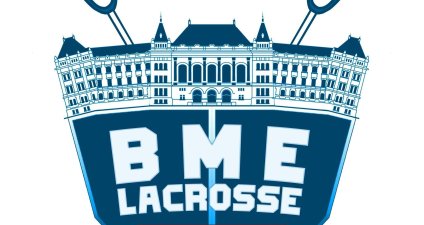
BMELAX@gmail.com

Kocsis Ábel
rueda.bme@gmail.com
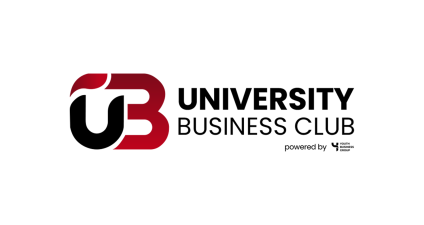
Szalay Csenge
szalay.csenge@ubc-bme.hu
International student organisations

The Erasmus Student Network (ESN BME) is one of the largest international non-profit student organisations, which has been present at BME for several decades. Its aim is to help students arriving at BME to integrate into their new environment, to provide a platform for students to get to know each other, and to organise cultural and other activities for them.
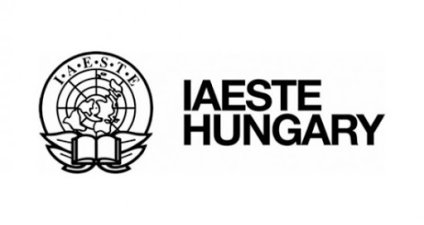
IAESTE Hungary (International Association for the Exchange of Students for Technical Experience) was founded in 1948 by university professors from ten European countries with the aim of enabling their engineering students to gain valuable professional and life experience in an international environment and then to apply their knowledge in their home countries after their return. Today, IAESTE is present in more than 85 countries and more than 300,000 students have participated in their exchange programme.
Hungary joined IAESTE in 1983. In addition to the exchange programme, the association also organises various career programmes, professional conferences, lectures, exhibitions, international trips and skills trainings.
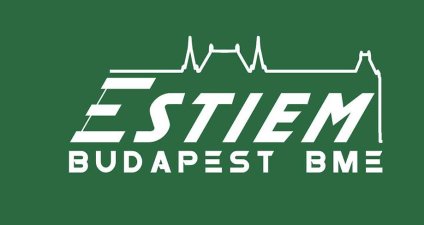
ESTIEM Budapest BME (European Students of Industrial Engineering and Management) is an international student organisation of engineering managers. It aims to organise, run and coordinate international conferences, student exchange programmes, case study competitions and seminars.

AISEC (Association Internationale des Etudiants en Sciences Economiques et Commerciales) is a global network of young people in around 120 countries around the world, offering young people the opportunity to develop their skills and abilities. Through AIESEC, students can participate in international volunteering and professional projects that can have a positive impact on both the economy and society, and use the knowledge and experience gained to become responsible leaders of the future. Volunteering programmes focus on a relevant cultural, economic or social issue in a particular country, while traineeships provide valuable work experience for senior students.
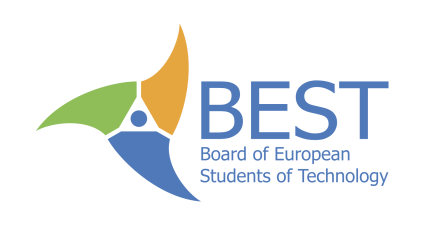
BEST (Board of European Students of Technology) is a non-profit international student organisation of European engineering students, now active in 92 technical universities in 33 countries. It aims to prepare future engineers for international work in a multicultural environment. Since the organisation was founded in 1989, its innovative and up-to-date international programmes have provided engineering students with a wide range of opportunities to develop their skills and learn about other cultures. The BEST Budapest local group was founded in 1989 and organises programmes for students of BME.

